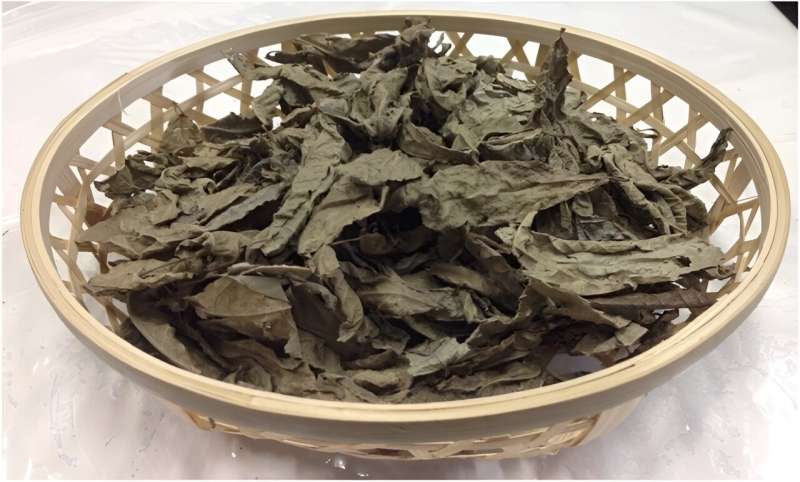This article has been reviewed according to Science X's editorial process and policies. Editors have highlighted the following attributes while ensuring the content's credibility:
fact-checked
trusted source
proofread
Tropical plant native to China reveals antiobesity potential

Obesity, a major risk factor for various lifestyle diseases such as diabetes and hypertension has become widespread worldwide. A multi-institutional research group led by Associate Professor Akiko Kojima of the Graduate School of Human Life and Ecology at Osaka Metropolitan University, has made significant progress in the fight against obesity.
The group had previously conducted a study on the effects of the extract of Mallotus furetianus (MFE), a tropical plant native to Hainan Island, China, on the prevention of fatty liver, but the antiobesity effects of MFE and its mechanisms had not been fully understand until now. Their findings were published in Food Science & Nutrition.
Using obesity mouse models, the researchers set out to verify the antiobesity effects of MFE extract and the results were remarkable. Treatment with MFE significantly suppressed the increase in body weight and adipose tissue weight, and also demonstrated morphological changes in the liver and adipose tissue of the mice.
Further investigation into the mechanism revealed that fat synthesis was inhibited by suppressing the expression of several transcription factors involved in adipocyte differentiation.
"Our research group is searching for food ingredients with antiobesity effects, based on the idea that if we can find and incorporate them into our daily diets, we can contribute to people's health and longevity," stated Professor Kojima. "These results not only suggest a link between Mallotus furetianus extract and antiobesity effects but also indicate its potential as a new food ingredient with antiobesity properties."
More information: Touko Nakano et al, The suppression of the differentiation of adipocytes with Mallotus furetianus is regulated through the posttranslational modifications of C/EBPβ, Food Science & Nutrition (2023). DOI: 10.1002/fsn3.3551



















